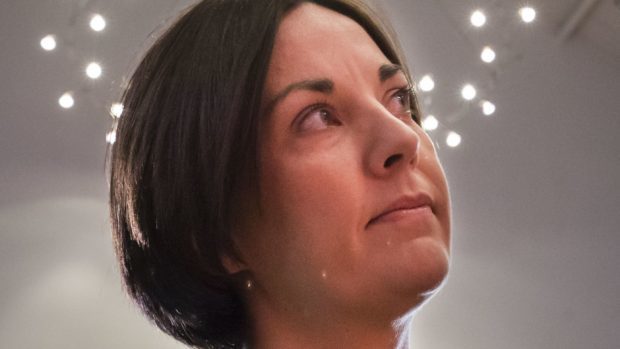Former Scottish Labour leader Kezia Dugdale has claimed she was outed by a magazine before she had publicly revealed she is gay.
Ms Dugdale said she had to “make some phone calls” to inform people about her sexuality before they read the interview and regretted not having “complete control” over the process.
Meanwhile, Tory minister Sir Alan Duncan claimed being gay led to him being “blackballed” from a senior role early in his career.
Ms Dugdale, who quit as the leader of Scottish Labour this week, said she asked for her quotes on her sexuality not to be included in an interview with the Fabian Review in 2016 – a claim disputed by the journalist who wrote the piece.
She told the BBC’s Victoria Derbyshire programme: “It wasn’t the first time I’d been asked (by journalists) about my sexuality. I would always answer honestly, and then I would say ‘I’d prefer you didn’t use that … I don’t think it matters’.
“Up until that day, everybody had respected that, and then that one journalist had decided no, it was a story.”
Mary Riddell, the journalist who conducted the interview, said: “During my Fabian interview with Kezia Dugdale, she volunteered that she had a female partner and spoke briefly about that relationship as a source of strength.
“I had no knowledge before the interview either of her sexuality or whether she was in a relationship. At no point during the interview or afterwards did she ask me not to publish her comments, which were recorded with her agreement.
“Nor has she ever complained to me that her on-the-record comments relating to her relationship had been published.”
A Fabian Society spokeswoman said: “We are very sorry that Kezia Dugdale was upset by the interview that appeared in the Fabian Review in 2016. This wide-ranging and comprehensive on-the- record interview was conducted by an experienced, broadsheet journalist who followed usual journalistic practice.”
Sir Alan told the programme that his sexuality led to him being blocked from becoming a whip during John Major’s government.
The Foreign Office minister said he was “blackballed from the whip’s office” by people ” who thought it would be too high-risk”.
He came out in 2002, reasoning that “I’d reached the point, having been in Parliament for 10 years, where I thought I was senior enough not to be dismissed”.
